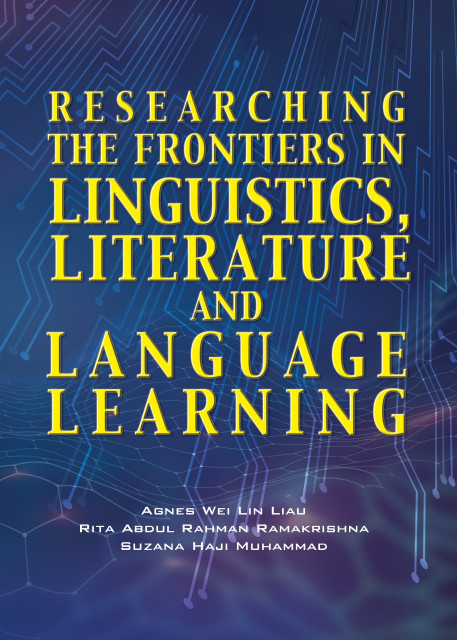
ISBN: 9789674608415
Year Published: 2020
Price: RM 30.00 / 35.00 (Sabah & Sarawak)
This collection provides readers with an overview of three themes that are within the frame of linguistic, literature and language learning studies. Irrespective of their own contexts, the chapters presented to highlight the overarching perspectives that mark the varied, yet substantiated horizons of research in Linguistics and English Language Studies. These possibilities flag the vast “frontier” that enfolds the fields chosen in the collection. The respective chapters on linguistics discuss the evolution of language use and the Internet by looking at strategies and appropriations in selected online media.
In the domain of literature teaching and learning as well as language learning, the constituent of the “frontier” is also quintessentially prominent. Alternative methodologies are garnered in order to present varied means of studying the ubiquitous challenges of teaching and learning literature as well as language learning. Efforts have been made to study self-determination among low achieving students, critical thinking and Spoken. Word Poetry among students studying literature and low achieving students’ motivation in learning CERF English lessons. Knowledge is pivotal in order to enact change for the betterment of the teaching and learning processes experienced by educators and students in literature and also language learning. The analysis of the literary frontier exists within borders where different cultures, nations, ethnicity, and narratives, communicate and compete.
Therefore, the literary critic is notified in reading the texts to offer diverse reflections of the cultures, nations, and ethnicity. Researching the “frontier” in the spheres of Linguistics, Literature and Language Learning in this compilation thus unearths potential vistas to acquire new knowledge and to (re)interpret findings and innovations. The boundaries set in scoping the subject(s) investigated to reveal the ways linguistic diversity and language change can be studied in extending the frontiers of existing knowledge.